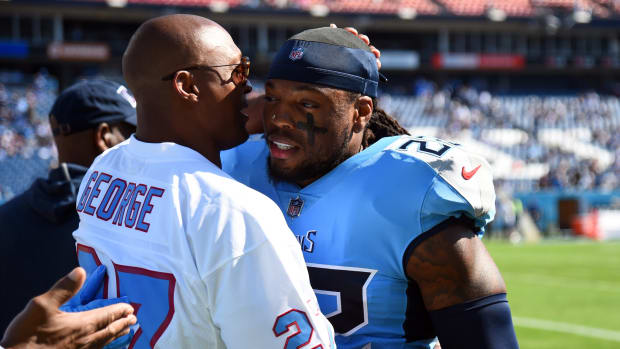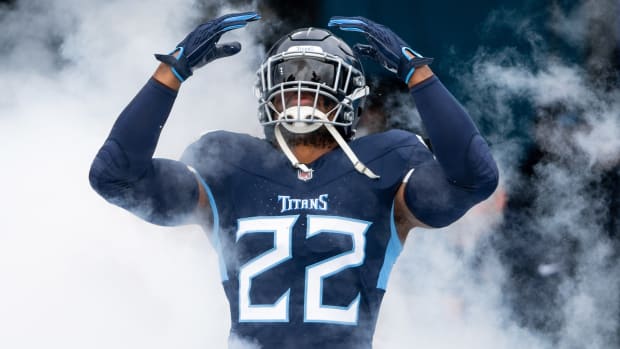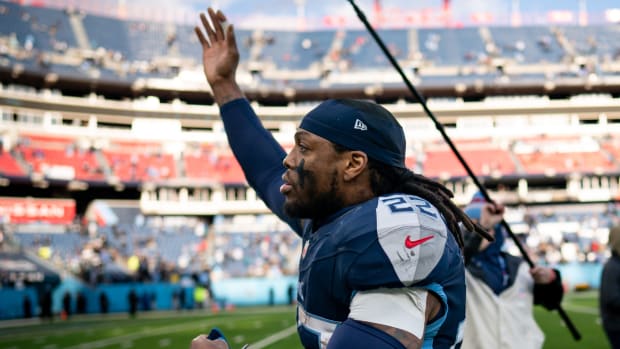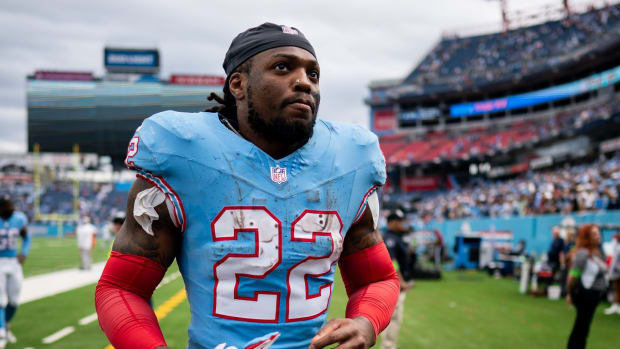Best of Titans 2021: Individual Awards
Tennessee Titans players and coaches made it clear in recent days that they intended to use their playoff bye as an opportunity to look at what they can do better in the postseason.
We will use it as a chance to look back at what they did particularly well during the regular season.
The NFL will hand out individual awards after the Super Bowl. Inspired by the league’s most prominent accolades, here are those Titans who distinguished themselves in a season filled with highlights.
Most Valuable Player: Kevin Byard, safety.
One factor in Byard as the choice here is that he is one of six Titans who started all 17 games. For this team this season, availability was as good as gold. But this is about much more than just perfect attendance. Byard became the franchise’s first player of the Titans era (1999-present) to lead the team in tackles (88) and interceptions (five) in the same season. He also had more than his share of game-changing plays, such as his touchdown off a fumble recovery in Week 5 at Jacksonville and his interception return for a touchdown that broke open the game against the Rams in Week 9. All the while he provided leadership in public and within meeting and locker rooms that kept a constantly changing roster moving in the right direction.
Offensive Player of the Year: Ryan Tannehill, quarterback.
Tannehill has had better seasons statistically, but more often than not he was good when he needed to be. Even with an ever-changing cast of wide receivers, he completed 67.2 percent of his throws, which was an improvement over 2020 and well above his career rate (64.2). His completion percentage topped 70 in six of the last eight victories, which meant when he was on target, the Titans won. Add to that the fact that he was second among all NFL quarterbacks with seven rushing touchdowns and that 33 of his 55 carries went for first downs shows. Plus, he directed four game-winning drives.
Defensive Player of the Year: Jeffery Simmons, defensive tackle.
Simmons is the choice, but not by a wide margin. Fellow defensive lineman Denico Autry and outside linebacker Harold Landry merited serious consideration as well, but Simmons was third among all NFL defensive tackles with 8.5 sacks, tied for second with 12 tackles for loss and tied for fourth with 16 quarterback hits. His six passes defensed were most at that position. In short, he was a constantly disruptive force for a defense that was among the NFL’s best at stopping the run and tied for fifth for fewest points allowed. His game-saving fourth-down stop of Buffalo quarterback Josh Allen might have been the most important moment of the season.
Rookie of the Year: Elijah Molden, defensive back.
This is the easiest choice of them all. The third-round pick out of Washington is the only one of this year’s draft picks who has made consistent contributions. In fact, the runner-up likely is Naquan Jones, an undrafted defensive lineman who was not even a part of the active roster until late September. Molden overcame a slow start and finished fifth on the defense with 60 tackles. He added four passes defensed, one forced fumble, one fumble recovery and one interception in 16 games, and he looks like a guy who will be a fixture on the defense for several years.
Comeback Player of the Year: A.J. Brown, wide receiver.
There are several ways to go with this choice. For example, guys like running backs D’Onta Foreman and Dontrell Hillard or cornerback Buster Skrine came back from professional purgatory and made meaningful contributions when the Titans gave them an opportunity to play. Linebacker Zach Cunningham bounced back from an inglorious exit from Houston and quickly became a pivotal piece of the defense after he was claimed off waivers. Nonetheless, we’ll go with Brown, who delivered a standout prime-time performance against San Francisco in his return from a stint on injured reserve. His 11 receptions for 145 yards and touchdown in that contest saved the day after the Titans fell behind early and kick-started the three-game win streak that carried Tennessee to the No. 1 seed in the AFC playoffs.
Coach of the Year: Tony Dews, running backs.
Mike Vrabel is a strong candidate to be the NFL Coach of the Year. We’ll exclude him from consideration here and focus on his assistants. The nature of Dews’ position changed midway through the season. He went from trying to figure out how to make the game’s best running back, Derrick Henry, even better to trying to make sure production at that position did not fall off when a broken foot sidelined Henry. In both cases, Dews got the job done. Henry was off to the best start of his career – as a runner and a receiver – before he was hurt, and a collective approach, led by Foreman and Hillard, made sure that no major changes were necessary to the scheme while Henry was injured reserve.






